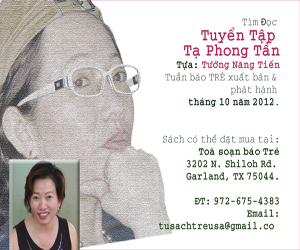Tìm hiểu về pháp lý Việt Nam
Audio clip: Adobe Flash Player (version 9 or above) is required to play this audio clip. Download the latest version here. You also need to have JavaScript enabled in your browser.
Getting a legal leg-up in Vietnam
It’s more than ten years since the Ministry of Justice in Vietnam set up a national agency to provide free legal aid for the poor and disadvantaged. Since then legal aid centres have sprung up in provincial capitals all over the country. It‘s a state-funded service but budgets are limited, so foreign donors, including the Swiss Agency for Development and Cooperation, support the system. World Radio Switzerland’s Vincent Landon reports.
Village life – as depicted at the water puppet theatre in Hanoi – consists of farming fishing and love affairs interspersed with the odd buffalo fight. Real life is not so harmonious. Take the case of Nguyen Viet Hung, a farmer‘s son from Loc Rong hamlet in Hoa Binh province. He’s 18 years old, the youngest of seven children. Last year, the teenager stole a computer from a school. He was arrested and sentenced to two years in jail. His father, Nguyen Van Thu, says at first he did not know where to turn.
NGUYEN VAN THU: When I was informed of the legal aid provided by the centre, I came to meet them and presented some of the relevant documents and they came to my home to get to know about the case and then they provided the aid.
The court accepted that this was a first offence and the sentence was suspended.
Thirty-three-year-old Le Thi Thom works for a Japanese company making electronic components. Four years ago, after finishing an eight-hour shift, she felt tired and refused to work overtime. The next morning, she was dismissed from her $35 dollar a month job. Represented by a lawyer from the centre, Le Thi Thom fought the case. After four months unemployment, she resumed working again and the company had to pay compensation for the whole four months salary for her.
The Provincial Legal Aid Centre in Hoa Binh handled about 8,500 cases last year. Most were civil matters. Those who benefit from the service include the poor, people who have served the revolution and ethnic minorities. The centre has seven legal aid staff at the provincial level, but nearly 200 collaborators in the communes and wards. Dinh Thi Oanth is the centre‘s director.
DINH THI OANTH: The challenge is to have sufficient number of legal aid staff who have the capacity and sufficient legal knowledge so that they can give advice or represent people before the courts. Sometimes, we are understaffed or under this capacity.
The director says the centre‘s effectiveness is also affected by the fact that the ethnic minorities are not always fluent in Vietnamese. Another challenge is that many of her clients have limited knowledge of the legal system and their rights.
Nguyen Thi Nhieu‘s family was tearing itself apart over a property dispute. Her husband, the oldest of five brothers and sisters thought he was entitled to inherit everything from his parents. The other sons and daughters disagreed. Nguyen Thi Nhieu took herself off to the legal aid centre for advice. The upshot: the property was divided five ways with her husband getting a slightly larger share.
NGUYEN THI NHIEU: Because of the explanation from the Provincial Legal Aid Centre about the law, we understand that it is fairly divided to the family members so we don‘t have any problem and there is no conflict between brothers and sisters in the family any more.
Many questions remain unanswered. How independent is a legal aid service that is so closely attached to the Ministry of Justice? What happens if a case involves a government department or official? Amnesty International says there are serious problems with constitutional and legal rights in Vietnam. If you try to set up a human rights group or a religious or political organisation, you face jail and harassment.
Vincent Landon, World Radio Switzerland
Pages: 1 2







